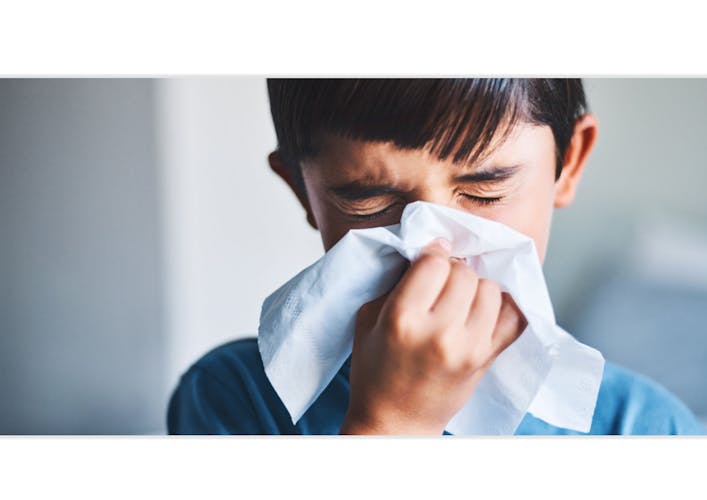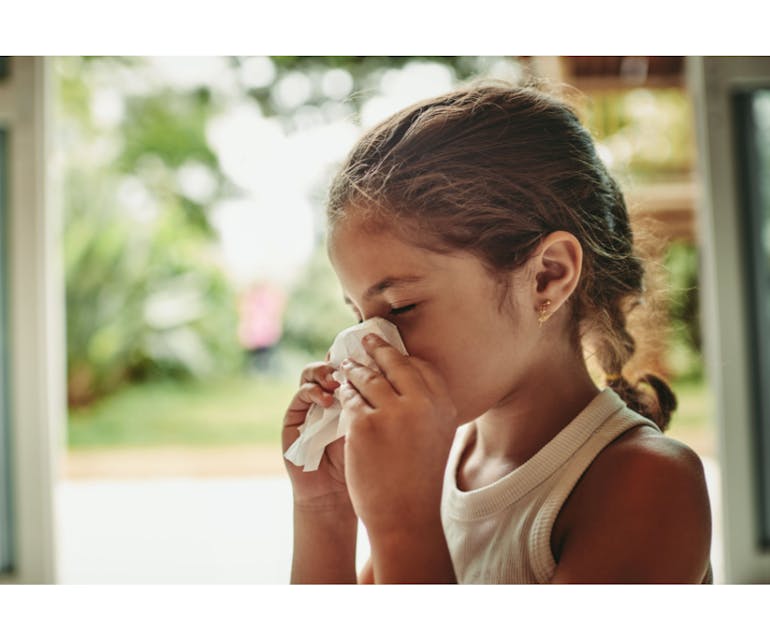Understanding Hay Fever in Children
Hay fever, also known as seasonal allergic rhinitis, is a common condition affecting both children and adults. It's an allergic reaction to airborne substances, such as pollen, that appear at particular times of the year. The prevalence of hay fever is quite significant, affecting a large number of children worldwide.
Causes of Hay Fever in Children
Hay fever in children is primarily caused by the immune system's reaction to allergens in the air. When these allergens, such as pollen from trees and grass, enter the child's body, the immune system treats them as invaders. This reaction leads to the release of chemicals that cause the symptoms of hay fever.
There are different types of pollen present throughout the year. For instance, tree pollen is highest from February through June, grass pollen from May through August, and weed pollen from July through October. The type of pollen a child is allergic to determines when symptoms occur.
Symptoms of Hay Fever in Children
The symptoms of hay fever can vary from mild to severe. Common symptoms include:
- Sneezing
- Itchy nose and/or throat
- Nasal congestion
- Clear, runny nose
- Red, watery, and itchy eyes
These symptoms often come on suddenly and last for as long as the child is exposed to the allergen. It's important to note that the symptoms of hay fever can be similar to those of a common cold. However, hay fever symptoms do not include a fever, which is a common symptom of a cold.
Diagnosis of Hay Fever in Children
Diagnosing hay fever in children often involves looking at the child's medical history. If the same symptoms present themselves at the same time of year, hay fever is likely the cause. In some cases, an allergy skin test or a blood test may be performed to confirm the diagnosis. These tests can help identify the specific allergens causing the symptoms.

Managing and Treating Hay Fever in Children
Managing Hay Fever Symptoms
Managing hay fever symptoms involves a combination of avoiding allergens and taking measures to reduce exposure to them. Here are some practical steps you can take:
- Keep windows closed in the car and at home, especially during high pollen seasons.
- Avoid going out on very windy days and after thunderstorms, when pollen count is usually high.
- Encourage your child to wear sunglasses to protect their eyes from pollen.
- Avoid hanging clothes outside to dry as they can collect pollen.
Implementing these measures can significantly reduce your child's exposure to pollen and alleviate their hay fever symptoms.
Treatment Options for Hay Fever
When it comes to treating hay fever, there are several options available. Over-the-counter medications, such as antihistamines, nasal sprays, and eye drops, can provide relief from symptoms. These medications work by blocking the action of histamine, a substance in the body that causes allergic symptoms.
In some cases, prescription medications may be necessary. If your child's symptoms are severe or persistent, it might be worth considering a visit to an allergist. Allergists are specialists in diagnosing and treating allergies. They can recommend appropriate treatments and even consider immunotherapy if necessary. Immunotherapy involves exposing the body to small amounts of allergens over time to build up immunity.
Impact of Hay Fever on Children's Lives
Hay fever can have a significant impact on a child's life. The symptoms can affect their sleep, development, and school performance. It's not just the physical discomfort; hay fever can also cause a lot of distress and frustration for children.
Practical Advice for Parents and FAQs
Practical Advice for Parents
As a parent, it's natural to want to do everything you can to help your child feel better. Here are some practical steps you can take to minimize your child's exposure to pollen:
- Try to plan indoor activities when the pollen count is high.
- Encourage your child to shower and change clothes after being outdoors to remove pollen.
- Keep windows and doors shut as much as possible during high pollen seasons.
Remember, it's essential to seek medical advice if your child's hay fever symptoms are causing significant discomfort or affecting their daily life. A healthcare professional can provide appropriate treatment options and advice tailored to your child's specific needs.
Frequently Asked Questions
Can babies have hay fever?
Yes, babies can have hay fever, but it's rare in children under the age of 5. If your baby has symptoms like a runny nose, itchy eyes, or sneezing during pollen season, it could be hay fever. However, it's important to consult a healthcare professional for a proper diagnosis.
How can I tell if my child's symptoms are due to a cold or hay fever?
While the symptoms can be similar, there are some key differences. Hay fever symptoms can last for weeks or months as long as the child is exposed to the allergen, while cold symptoms usually clear up in 1 to 2 weeks. Also, hay fever does not cause a fever, but a cold might.
What are the best treatments for hay fever in children?
The best treatment depends on the severity of your child's symptoms. Over-the-counter antihistamines, nasal sprays, and eye drops can be effective for mild symptoms. For more severe symptoms, a healthcare professional might recommend prescription medications or refer your child to an allergist for further treatment options.
Can hay fever lead to other health conditions in children?
Yes, if left untreated, hay fever can lead to other health conditions like sinusitis and asthma. It can also affect a child's quality of life, causing sleep problems and affecting school performance.
How can I help my child cope with hay fever symptoms at school?
Inform the school about your child's condition so they can help manage your child's symptoms. Encourage your child to stay indoors during high pollen times and to wash their hands and face regularly to remove pollen. You can also provide your child with tissues and over-the-counter medications, like antihistamines, to help manage symptoms during the school day.
Remember, every child is unique, and what works best for one child may not work for another. Always consult with a healthcare professional for the best advice and treatment options for your child's hay fever.
- Benadryl: Hay Fever in Children
- Childhealthy: Hayfever In Children And Babies
- Hopkins Medicine: Allergic Rhinitis in Children
- KidsHealth: Seasonal Allergies (Hay Fever)
- Patient.info: How do you treat hay fever in children?
- RCH Kids Health Info: Hay Fever

